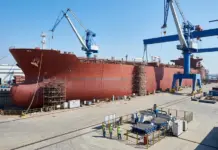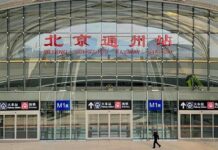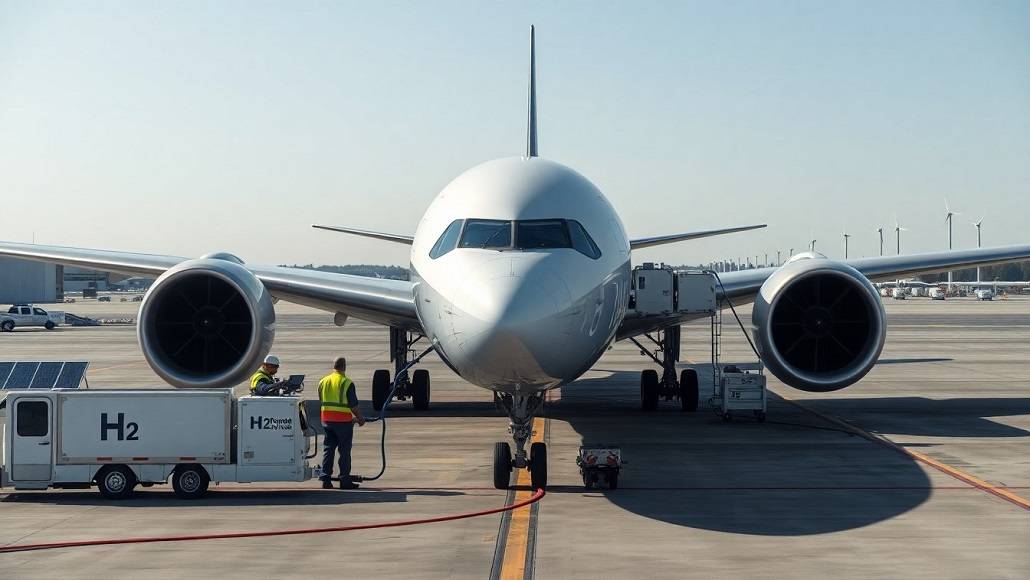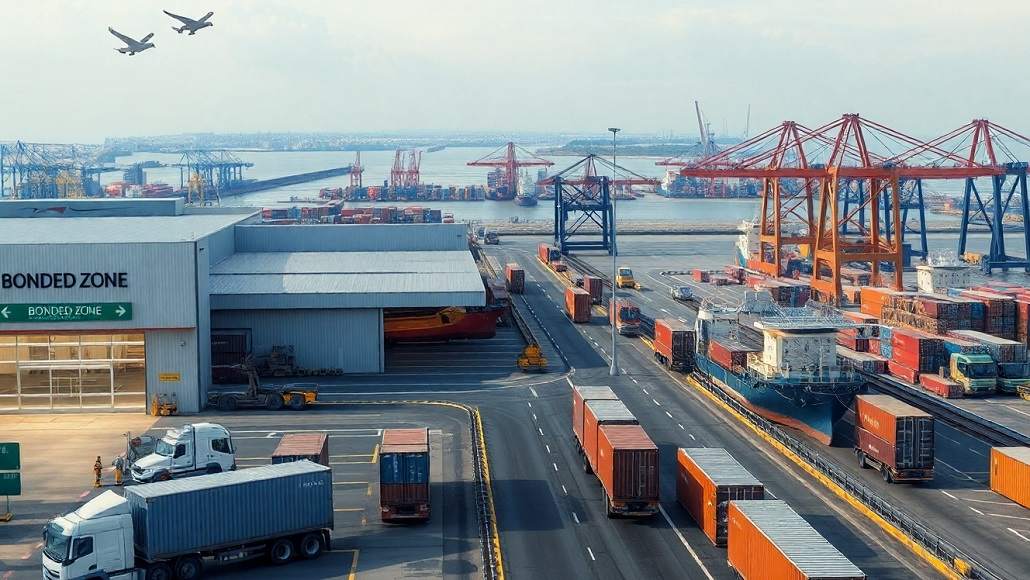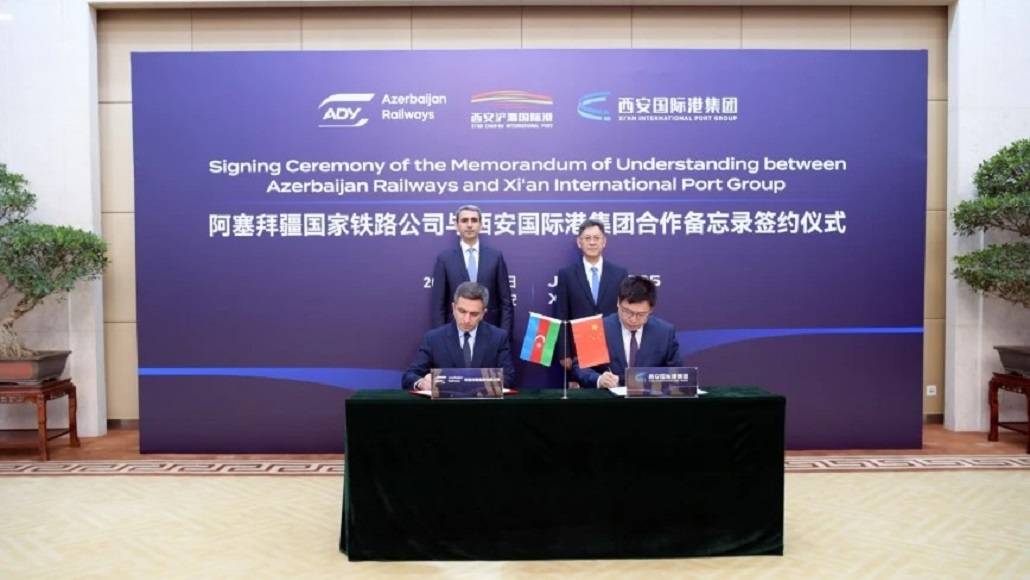Azerbaijan Railways (ADY) and China-based Xi’an Free Trade Port Construction and Operation Co. Ltd. agree to boost transit cooperation as ADY signed a memorandum of understanding (MoU) with Xi’an Free Trade Port Construction and Operation Co. Ltd. during an official business visit to China. The agreement marks a new phase in Middle Corridor railway cooperation, which continues to gain traction as a vital transport link between Asia and Europe.
As part of the agreement, ADY will station a permanent representative at Xi’an Port and has officially launched a container terminal there. The facility is built to handle 20,000 TEUs annually, helping to improve cargo handling capacity along this critical route.
The MoU outlines wider areas of collaboration. The two parties will collaborate in the expansion of transit operations, digitalisation of infrastructure, and boosting cargo flow along the Trans-Caspian International Transport Route (TITR), commonly known as the Middle Corridor.
In meetings with Xi’an Mayor Ye Niuping and officials at the port, ADY Chairman Rovshan Rustamov emphasised the importance of the new agreement. He called it the result of sustained discussions between ADY and Xi’an Port leadership. According to Rustamov, assigning a full-time ADY representative and launching the terminal are essential steps that will boost the Middle Corridor railway cooperation and improve efficiency in cargo transit. The MoU also enables direct access to Xi’an Port’s systems, speeding up information flow and strengthening real-time coordination.
Rustamov also drew attention to the broader context of the alliance. He spoke of the strategic partnership signed during President Ilham Aliyev’s visit to China in April 2025 as a milestone in bilateral cooperation within the Belt and Road Initiative.
On the visit, Rustamov informed Chinese counterparts of the most recent integration of the Baku International Sea Port into Azerbaijan Railways (ADY). He noted that having port and rail operations integration will improve logistic service along the Asia–Europe corridor.
Xi’an Port authorities welcomed the establishment of a container terminal by ADY. They said the new container terminal would strengthen cooperation, increase efficiency, and encourage joint decision-making for future transport developments. The move also reflects growing confidence in the Middle Corridor as a reliable logistics route.
Trade volumes point to the rising importance of the corridor. Azerbaijani-China rail cargo grew 47% in 2024 to 612,000 tonnes. 287 block trains came in from China alone last year. In the first half of 2025, that number already tallies 199, and is expected to exceed 400 by the end of the year.
Both sides plan to work more closely together on several key projects. These include integrating more container trains onto the corridor, enhancing port, railway, and Caspian Sea crossing capacity, and opening up greater access to Europe and Türkiye through the Baku–Tbilisi–Kars (BTK) railway.
Another MoU signed with China Railways State Corporation gives special emphasis to the upgrade of the BTK route. The two signatories committed themselves to increasing volumes of Chinese manufactured goods flowing to European markets via Azerbaijan, Georgia, and Türkiye, further consolidating the Middle Corridor rail cooperation as a strong alternative to conventional routes.
Rail connections between Xi’an and Baku continue to improve. A container block train completed the journey from Xi’an to Baku in just 11 days in March 2024. November 2023 marked the first export train from Azerbaijan to Xi’an, carrying 62 containers. Today, Azerbaijani exporters have a direct and efficient link to the Chinese market, as two block trains leave Baku for Xi’an each month.







